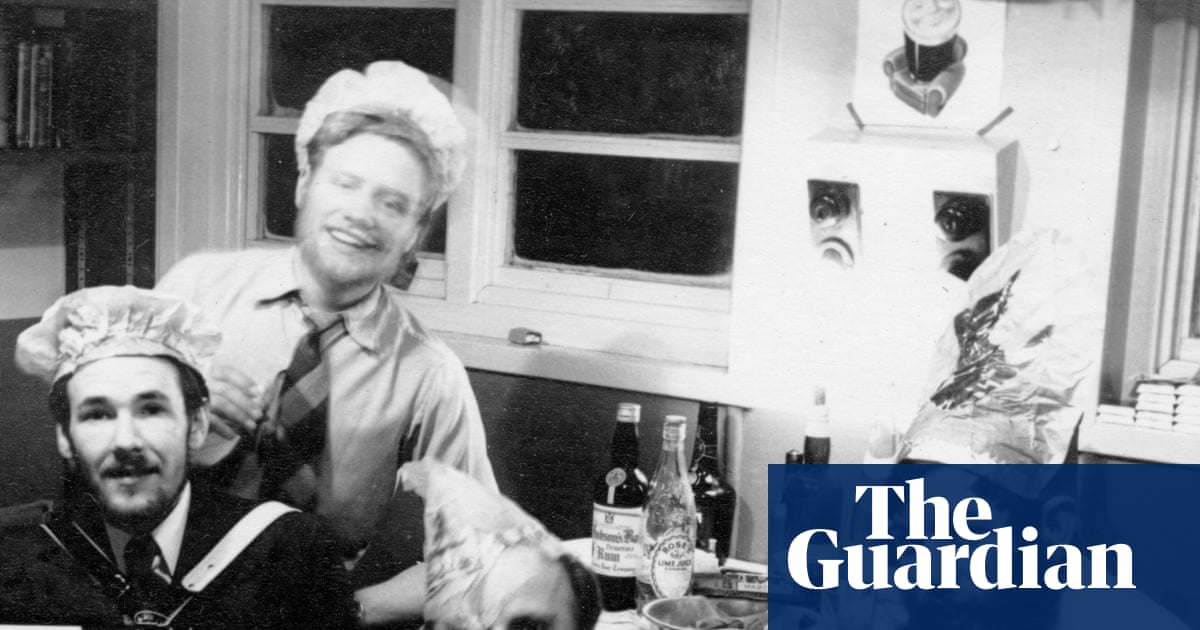The remains of a British man who died in an accident in Antarctica 66 years ago have been discovered in a melting glacier alongside ski poles, a pipe and a watch.
Dennis “Tink” Bell fell into a crevasse in 1959 while working for the Falkland Islands Dependencies Survey (Fids), now the British Antarctic Survey (BAS), a few weeks after his 25th birthday. His body was not found until January, when a Polish expedition encountered bones near their base.
More than 200 personal effects were also found nearby, including radio equipment, a torch, ski poles, an inscribed Erguel wristwatch, a Swedish Mora knife, ski poles and an ebonite pipe stem.
The area at the front of the Ecology glacier where Dennis Bell’s remains and effects were found. Photograph: Henryk Arctowski/Polish Antarctic Station
The human remains were shipped to the Falkland Islands before being brought to London by the Royal Air Force. DNA testing at King’s College London identified a match with samples from Bell’s brother and sister.
His brother David, who lives in Australia, said: “When my sister Valerie and I were notified that our brother Dennis had been found after 66 years we were shocked and amazed.
“The British Antarctic Survey and British Antarctic Monument Trust have been a tremendous support and together with the sensitivity of the Polish team in bringing him home have helped us come to terms with the tragic loss of our brilliant brother.”
Dennis Bell (left) with colleagues at the Admiralty Bay station in 1959. Photograph: Courtesy of British Antarctic Society
The family are still to decide how to mark their brother’s memory.
Bell was conducting a survey and geological work in 1959 as part of a two-year assignment, alongside three other researchers who were stationed at Admiralty Bay, a small UK base on King George island.
He went ahead of his colleagues without his skis on an excursion to Ecology glacier before falling almost 100 feet through a crevasse bridge. Vivian Fuchs, a previous director of the BAS, tried to rescue him by lowering a rope, which Bell attached to his belt. But as the stranded man reached the top, his belt broke and he fell again and stopped replying.
His companions later tried to return to the crevasse, but the weather began to deteriorate rapidly before they could reach the scene of Bell’s fall. Ken Gibson, who was half an hour behind Bell, remembers: “It was probably 12 hours before we found the site and there was no way he could have survived.”
skip past newsletter promotion
Our morning email breaks down the key stories of the day, telling you what’s happening and why it matters
Privacy Notice: Newsletters may contain info about charities, online ads, and content funded by outside parties. For more information see our Privacy Policy. We use Google reCaptcha to protect our website and the Google Privacy Policy and Terms of Service apply.
after newsletter promotion
The Admiralty Bay station, where Dennis Bell was based, pictured in 1951. Photograph: Roger Todd-White/Courtesy of British Antarctic Society
Bell had joined Fids as a meteorologist in 1958 after working as a radio operator for the Royal Air Force as part of national service.
He was brought up in Harrow, north-west London. His brother said “Dennis was the oldest of three siblings and was my hero” because of his ability to “turn his hand to anything”.
“He built a radio from scratch, spending hours taking down morse code,” he said. “Other interests included scouting, theatre and eating. Dennis loathed organised sport, he just could not see the point. He would rather have a social drink with his family and friends with plenty of laughter.”
The director of the BAS, Prof Jane Francis, said: “The confirmation of the remains found on Ecology glacier as those of Dennis ‘Tink’ Bell is both a poignant and profound moment. Dennis was one of the many brave Fids personnel who contributed to the early science and exploration of Antarctica under extraordinarily harsh conditions.”
The chair of the British Antarctic Monument Trust, Rod Rhys Jones, said: “The discovery of Dennis Bell brings sharply into focus the cost of scientific endeavour in Antarctica in the years before the benefits of improved transportation and communication. Many of those lost were never found which makes this discovery the more remarkable.”
Jones also thanked Piotr Kittel, Paulina Borówka, Dariusz Puczko, Artur Ginter and Artur Adamek, of the 48th Polish Antarctic Expedition.
